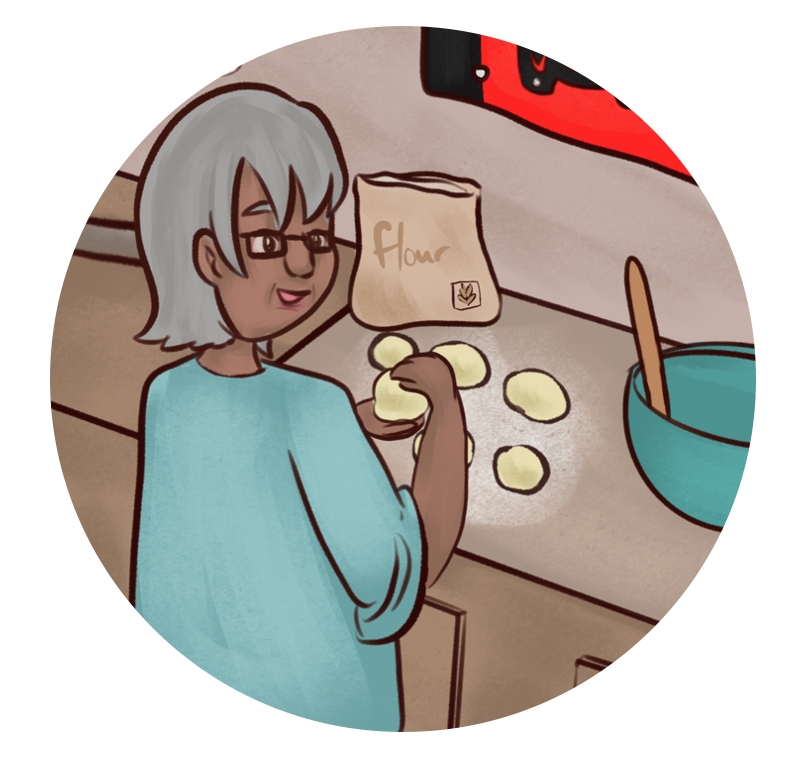Section 14.7 Wet'suwet'en - HALHT'Ï'M BÏ C'OLDIW CL'A TAK'IY NIT'AY
Written by: Veselin Jungic, Bethani L'Heureux, and Betty Willson
Illustrated by: Bethani L'Heureux
Wet'suwet'en translation and narration by: Shirley Cook of the Wet'suwet'en Nation
Wet'suwet'en transcript by: Gary George of the Wet'suwet'en Nation
Halht’ï’m Bï c’oldiw dinï yez owtzeen tsougth’ iteneh el loh dzïn hozk’its t’a tsini’ yeh sou’ hinclah
Small Number is a young boy who gets into a lot of mischief. One cool winter day, Small Number visited his Grandma.
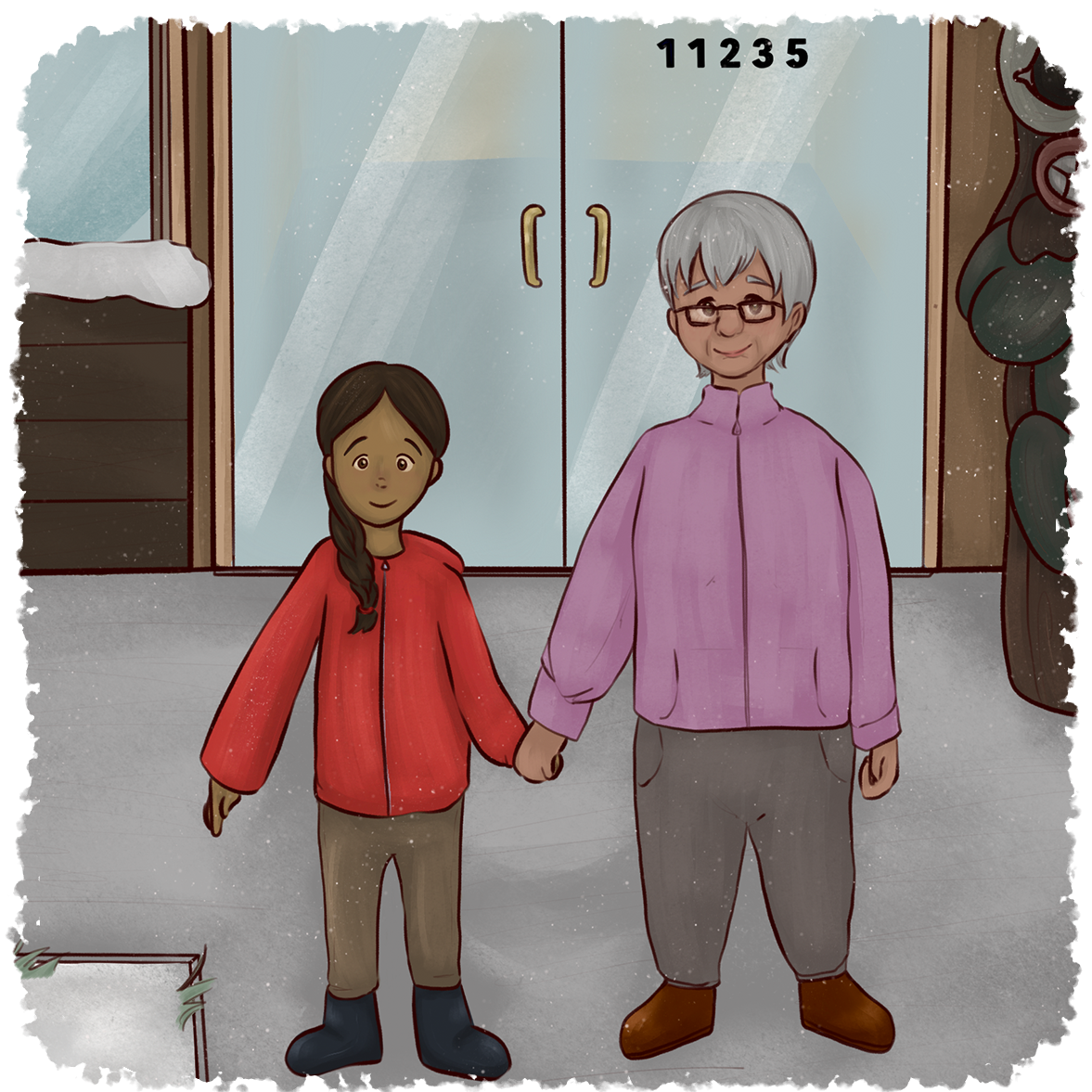
Halht’ï’m Bï c’oldiw bitse tsini dahl-ya-na-ni yin budiclhye yin kak tsini’ budiclhye Halht’ï’m Bï c’oldiw Khë bï st’ë bibïts tsolnï
For Small Number, his Grandma is the best cook in the world. Grandma knows that bannock is Small Number's favourite treat, so she decides to make bannock for lunch.
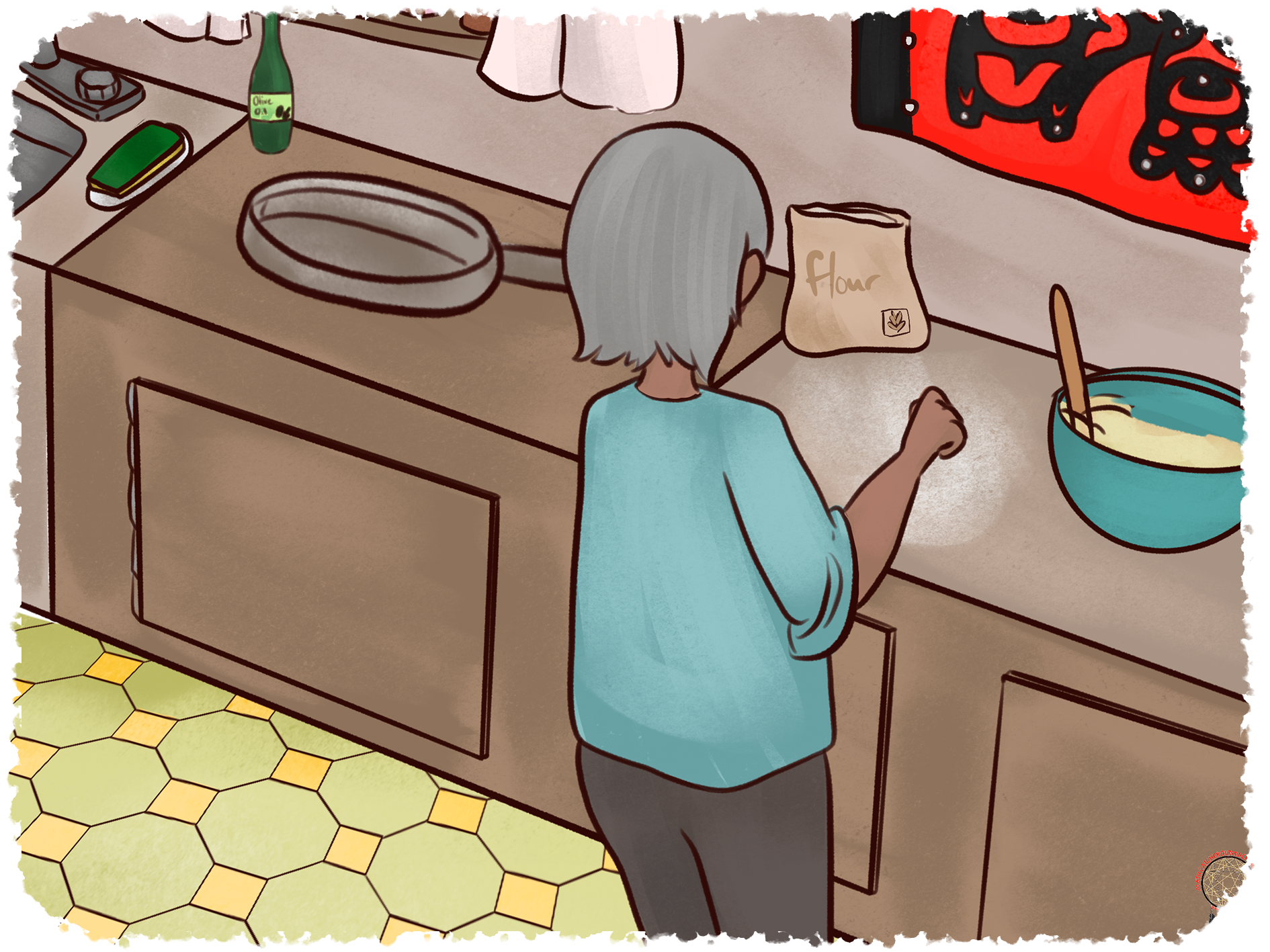
Halht’ï’m Bï c’oldiw bitse tsini’ yï begh lhtiy nïhn zëk tah nïhn to, lisël, bïkan t'oldëh, cl’a lhës nët git bitse tsini’ Bï c’oldiw Bë-yin-sa, begh yihl tin to.
Small Number watches Grandma as she mixes the flour, salt, and baking powder in a large bowl. Then Grandma adds oil into the mixture and whisks the ingredients together with a fork, gradually adding water and stirring.
Tsini’ soh’ ‘udiclhye’ ë’dik ky lhës net git, cl’a lisël, cl’a bïkan t’oldëh, ts-ëo ë’dik ya bihl ti-ni-zi, bi siy ne’, bilh la ë’steh, bilh la ë’stowh, owhtsinah, ehtdi-wë hlat, Halht’ï’m Bï coldiw.
“Grandma, how come that you didn’t measure how much flour, salt, and baking powder you put into the bowl? When I help my mom with cooking, she asks me to measure everything two times so that she is sure that we follow the recipe” - says Small Number.
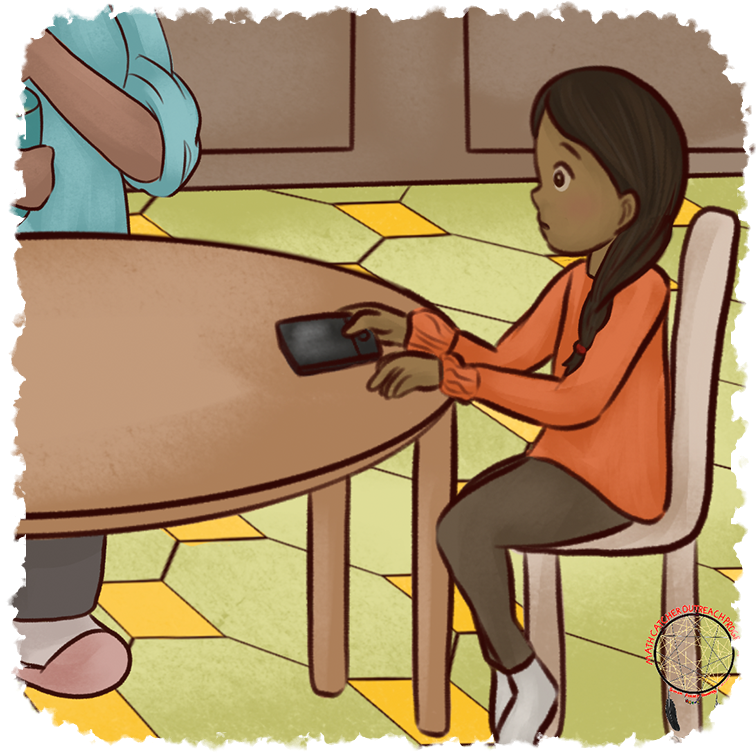
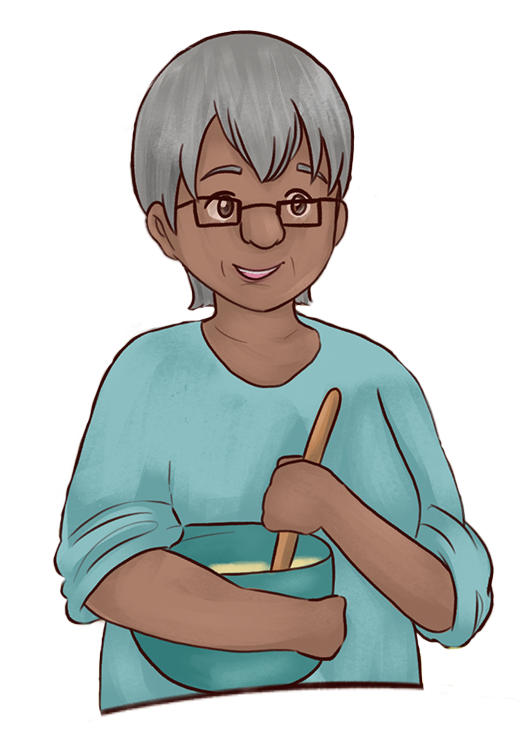
Tsini’ cl’a nïhn-zihn, tso cl’a nihl-lehn, siy sik sa gh’ina, lhës, cl’a lisël, cl’a Khë bï st’ë, Nek, lëtak-i, kwile’, ëh-ya a bibep ziehl la.
Grandma smiles: “I have my ways. I know how many handfuls of flour and how many pinches of salt I need if I am making bannock for two, five, ten, or fifty people.”
Siy ghe’n Khë bï st’ë sine’ ben ne’ wa’h sou-dïwh’eah n-sine’ bilenghe’n tso’ sine’ bile bi, lhës net git bile bi.
“I learned how to make bannock from my mom’s mom,” continues Grandma. “She taught me that for five pieces of bannock, I would need four handfuls of flour.”
Siy Khë bï st’ë Tso sine Bilenghe’n owtzeen
“My bannock is not as half good as hers were.”
Tsini’ so gya Halht’ï’m Bï c'oldiw n-ïlh’ën so sine tabï nk’ësiy’ soh-wa hoht sine ba git sihn siy’ .
Grandma stops and looks at Small Number: “I loved my Grandma very much and she loved me the same way I love you, Small Number.”
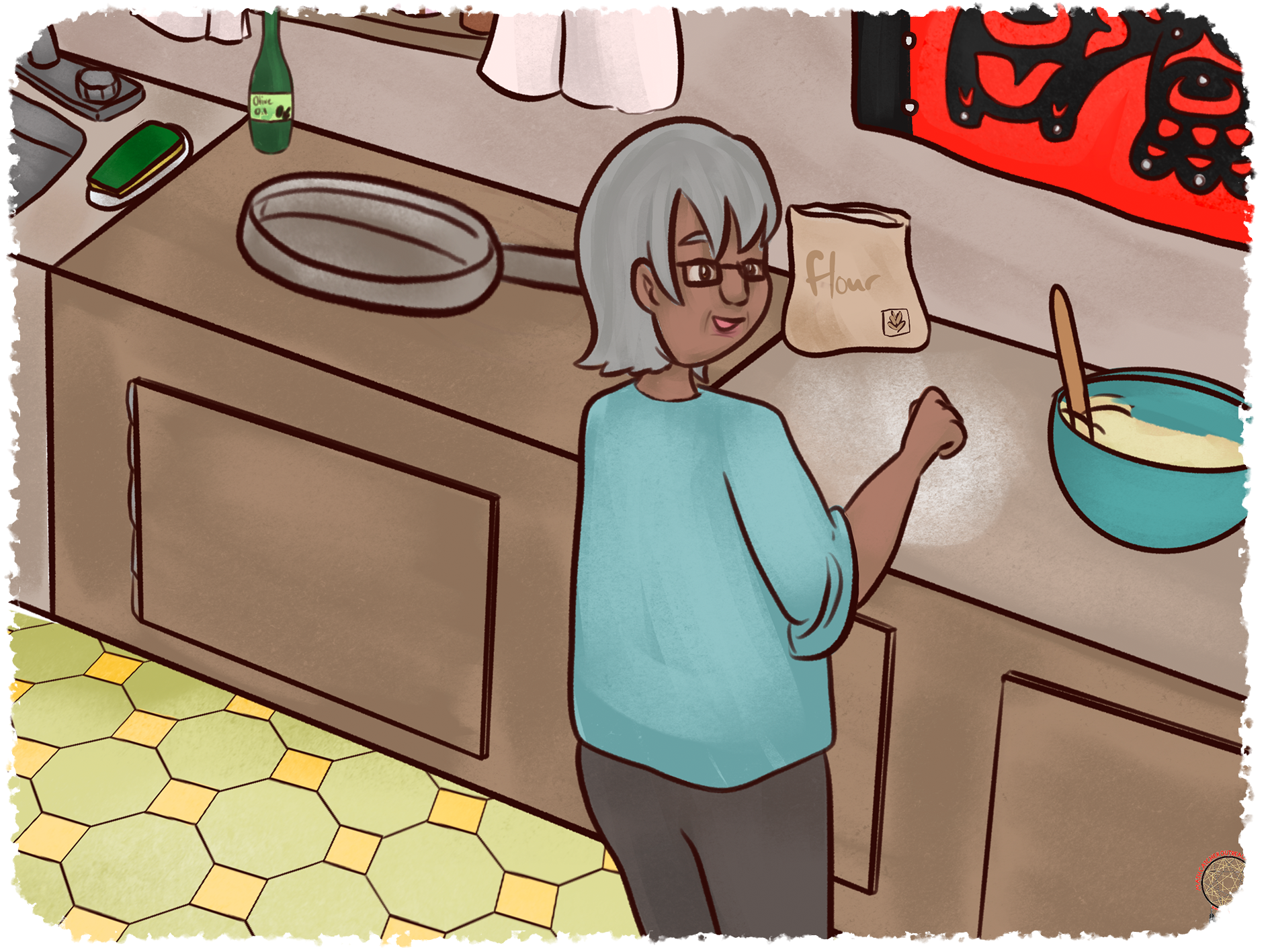
Tsini’ lhës net git lhës yit dik ki so yi nihl lhës.
Grandma dusted a part of the kitchen counter with flour and moved the dough from the bowl to the counter. Then she started to gently knead the dough.
Hudiclhye nyen to gits Ihts’iyh bi yikh be yah su di cen.
“Do you remember the island that we could see from the porch of my sister’s house when we stayed with her last summer?”
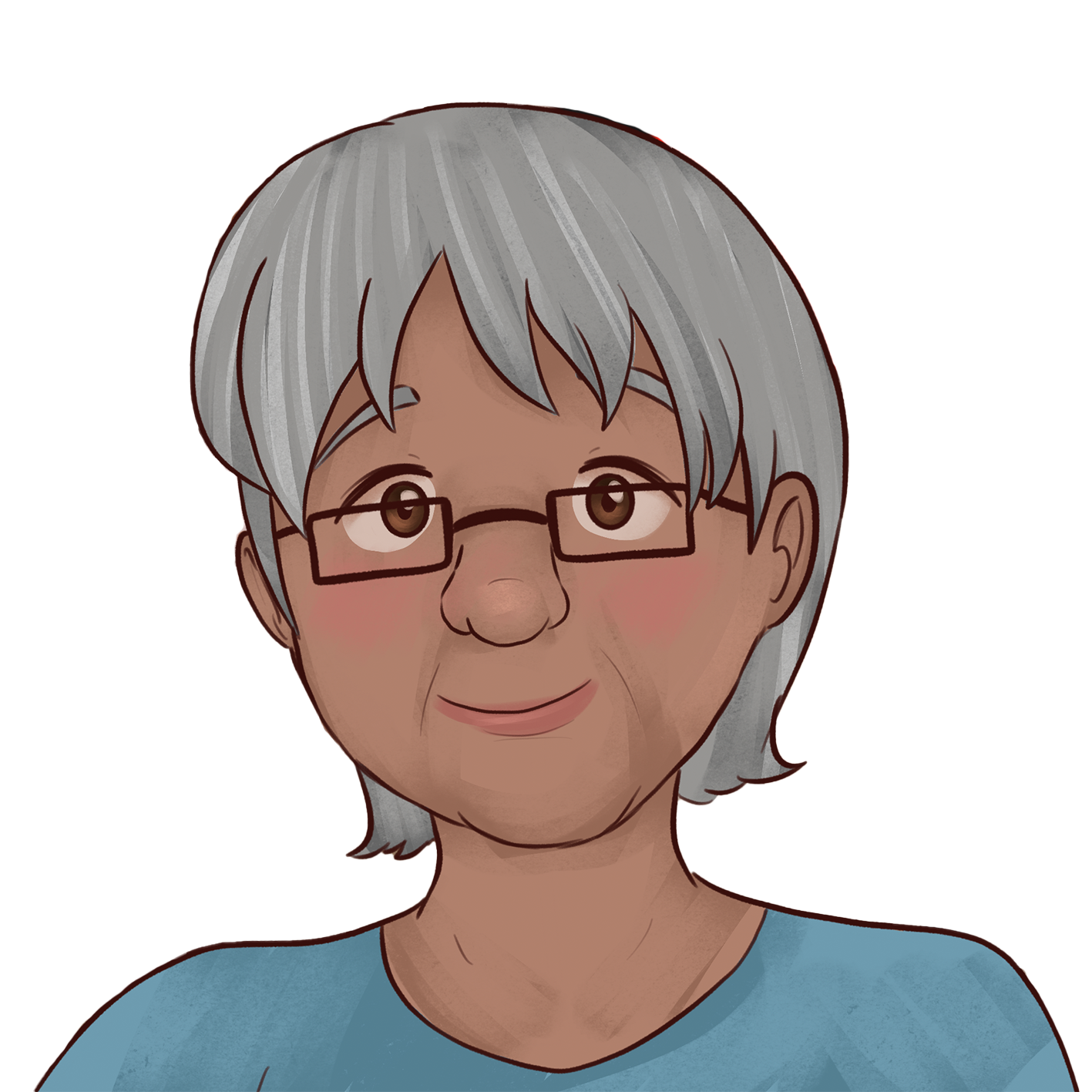
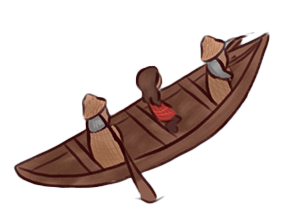
Ts’iy yin yisis tsa tsets lësa tso’ tsiy Bilegh ’enekh yin nit’ay sozihn ti yihl wenï yin timï? cl’a digï.
“When I was your age, my grandma and grandpa would take me in their canoe to the island to help them collect all kinds of berries: thimbleberries, huckleberries, wild strawberries, blackberries, and blueberries.”
Tsini’ lhës gïstan yihl-siy cl’a bile lek’ët na nehn la .
Grandma divided the dough into six balls and started flattening the first ball with the palm of her hand.
’Anu lh’ën ghen ke sihn talhls tsets lësa tsini’ ’Ëlhitl’ët ghina la hlo ada hinic ha bik ka aë sta nihl’en tso’ ayihl dik cl’a c’ide’ wit ’en ’iyi z’ilhdic
“We would stay overnight on the island. Both my Grandpa and my Grandma were great storytellers. I remember sitting between them on the beach, staring at the stars and listening their stories about the ways of our people.”
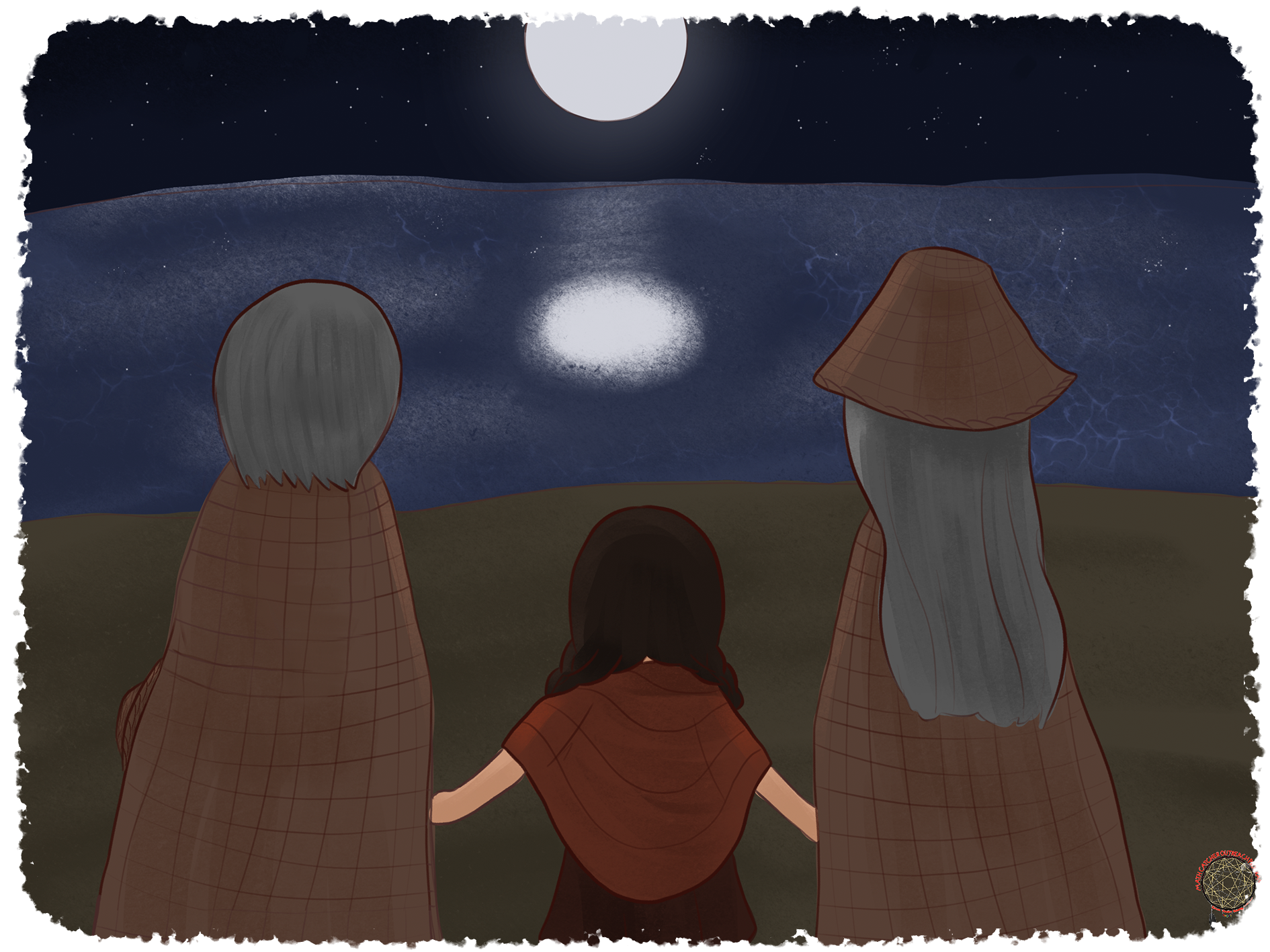
Tsini’ hë Bi c’its’ilht’es stokh bï yihn ky gïstan yihl-tsi.
Grandma put the oil in the frying pan, turned the stove burner on, waited a few minutes and then placed each of the six pieces of dough in the pan.
Tsini’ lhës bi c’its’ilht’es bi ën la dilhggis bi ën la cl’a kwus distl’is dut’en bi yïnï nihn la.
When Grandma took the bannock from the frying pan and put them on a paper towel lined plate, each piece of bannock looked golden brown on both sides.
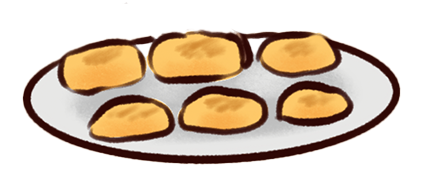
Halht’ï’m Bï c’oldiw Khë bï st’ë bibe tsolnï a dzïo dihn nen lï Bidzï lhalhde’
Small Number could smell the freshly fried bannock and he felt his heart beating faster.
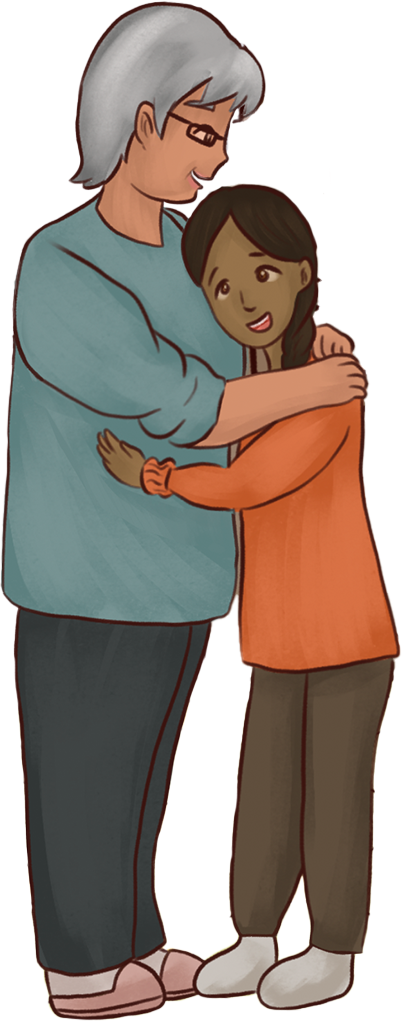
Bi tsini’ cë yu tahnt tabï misiyh cyo yihl ni.
He went to Grandma and gave her a hug, “Thank you, Grandma.”
Khë bï st’ë nehn tat ghus im ba tsë leh Si’si dil de’.
“We need to wait a bit until the bannock cools down.”
’A whlh ni wi behts sihl ne tsi tsini’ tso u’ohnzit git tso dis tsa so dis ghut.
“So, while we are waiting, let’s think about a question that my Grandma asked me a long time ago.”
Netnï bibep sis cl’a bis khak tikh ni nad’iy hohn nahl dilh tak’iy nad’iy owa s’ghin nahn nilh Halht’ï’m Bï c’oldiw h’o la ni dihl’ik.
“Two father bears and two son bears go to the bushes to get a berry each. There are only three berries left, but each bear gets to eat one. Small Number, how is that true?”
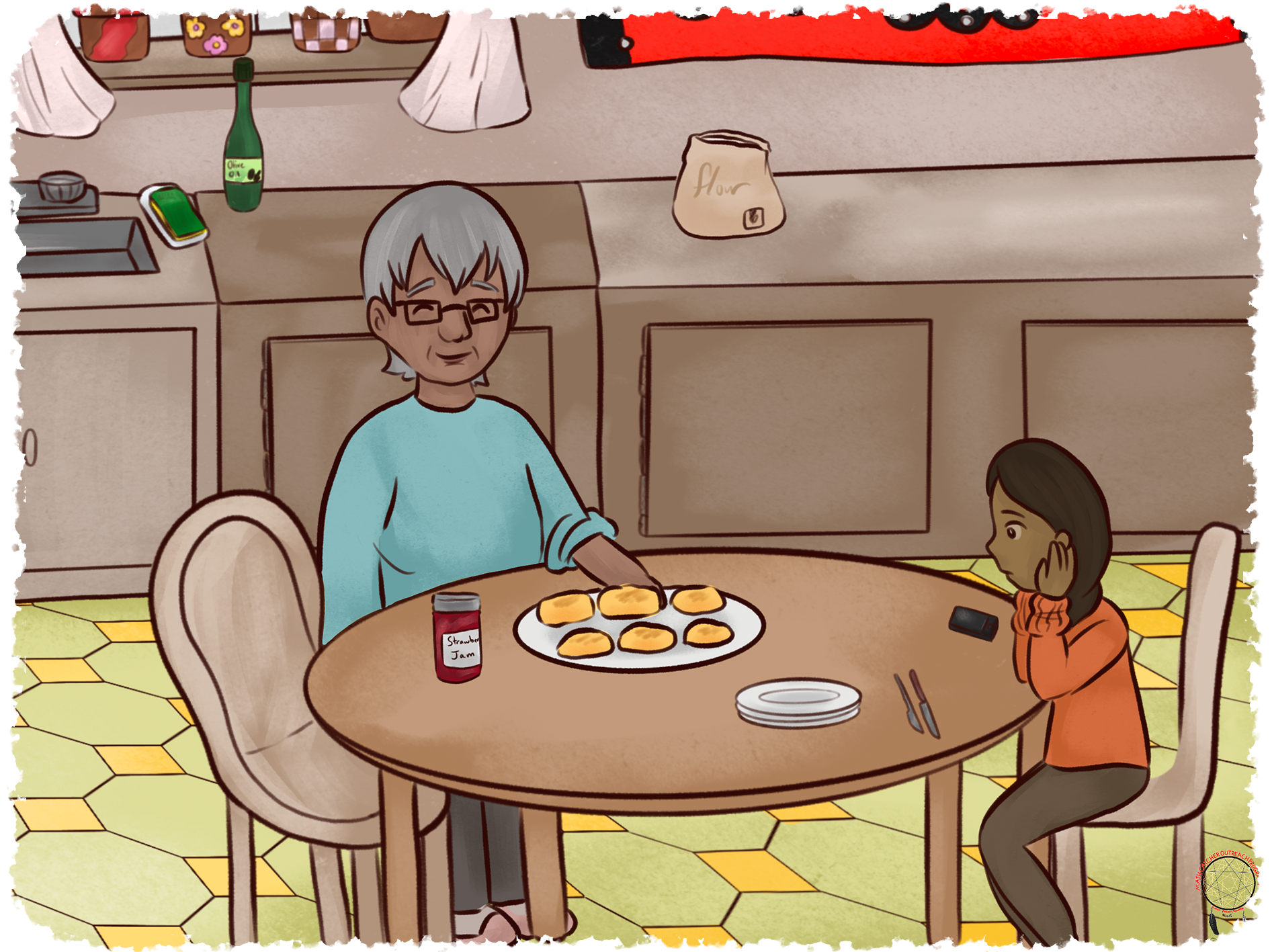
Halht’ï’m Bï c’oldiw wa nïhnïn zit za neeh deghil nï yïz?iz ya yehl ya diht za.
Small Number was still thinking about Grandma’s question when he heard Grandma’s voice:
Ci owht Khë bï st’ë yin timï’ bis ta’alh.
“Now, shall we snack on some bannock with strawberry jam?”
Tsini’ halht’i’m kyos i’sti cl’a adik’gina lhës cl’a khë bï st’ë ky cl’a lesel zo’ hinehn saht cl’a sis nët’nï’ cl’a bi skak tanï ëhn lï zi’o nit’ay yi nïhn ëht cl’a us’alh.
Question: How many handfuls of flour did Grandma need to make six pieces of bannock? Also, how could two father bears and two son bears share three berries equally?
